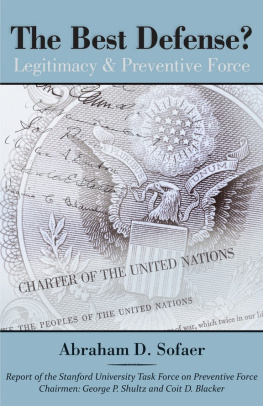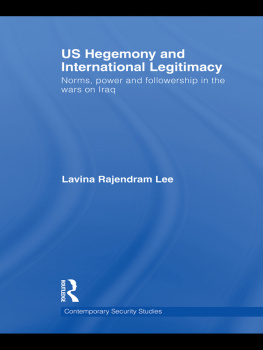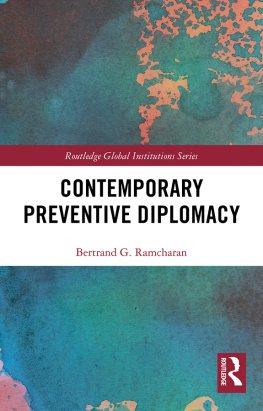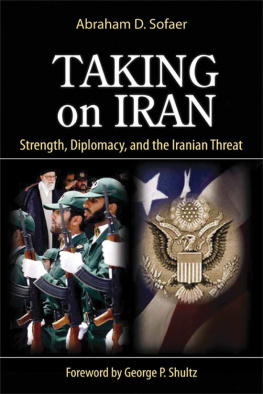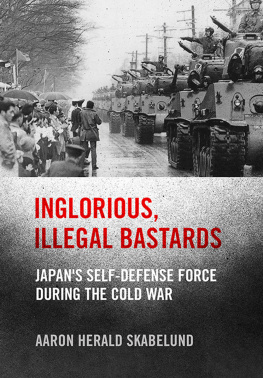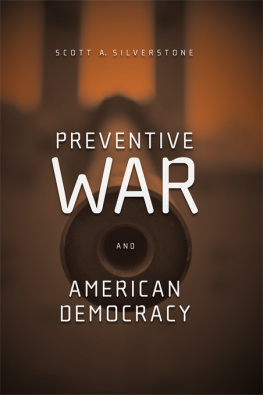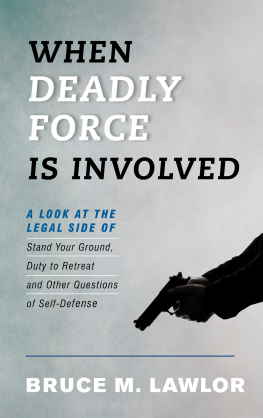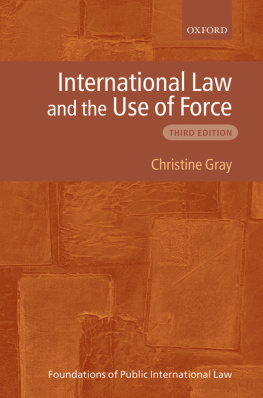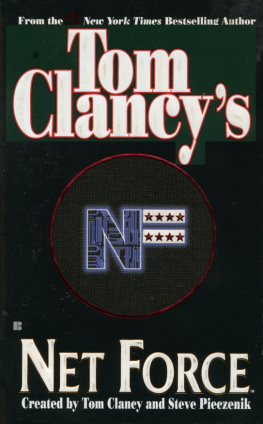The Hoover Institution on War, Revolution and Peace, founded at Stanford University in 1919 by Herbert Hoover, who went on to become the thirty-first president of the United States, is an interdisciplinary research center for advanced study on domestic and international affairs. The views expressed in its publications are entirely those of the authors and do not necessarily reflect the views of the staff, officers, or Board of Overseers of the Hoover Institution.
www.hoover.org
Hoover Institution Press Publication No. 576
Hoover Institution at Leland Stanford Junior University, Stanford, California, 94305-6010
Copyright 2010 by the Board of Trustees of the Leland Stanford Junior University
All rights reserved. No part of this publication may be reproduced, stored in a retrieval system, or transmitted in any form or by any means, electronic, mechanical, photocopying, recording, or otherwise, without written permission of the publisher and copyright holders.
First printing 2010
16 15 14 13 12 11 10 9 8 7 6 5 4 3 2 1
Manufactured in the United States of America
The paper used in this publication meets the minimum Requirements of the American National Standard for Information SciencesPermanence of Paper for Printed Library Materials, ANSI/NISO Z39.48-1992.
Cataloging-in-Publication Data is available from the Library of Congress.
ISBN 978-0-8179-1004-4 (cloth : alk. paper)
ISBN 978-0-8179-1005-1 (pbk. : alk. paper)
ISBN 978-0-8179-1003-7 (e-book)
Foreword: An Ounce of Prevention Is Worth a Pound of Cure
Old sayings often contain wisdom. I like the one that says, An ounce of prevention is worth a pound of cure. Actually, I think it should be quite a few pounds of cure.
Prevention can take many forms. No doubt the most important, from the standpoint of the topic of this report, is learning how to prevent the need to use preventive force. We gave this issue a great deal of thought during our deliberations in the Task Force on Preventive Force. Every member of our group at Stanford, as well as all the scholars, diplomats, and national security experts we met during the three years of work on this project, agreed on the importance of avoiding the use of preventive force whenever possible.
Special attention must be given to those aspects of international security that are the source of our greatest fears, and that thereby generate the greatest pressure on leaders to act preventively. The most important example of such a threat is the possible use of nuclear weapons. The threat of nuclear weapons must be addressed and reduced systematically. The more states that have these weapons, the more fragile will be the application of deterrence strategy as a way of preventing their use. Of course, the terrorists who now seek nuclear weapons essentially cannot be deterred. If they get a weapon, they will use it.
We will progress in reducing the threat of the use of nuclear weapons, and other major threats that might lead to the use of preventive force, only if we develop our capacity to evaluate these complex problems, develop workable solutions to them, and then implement those solutions effectively. Nothing significant can be done to address the problem of, and eventually eliminate, nuclear weaponsor any other major source of international insecuritywithout effective diplomacy. Intense and persistent diplomacy is needed, for example, to implement the steps that have been identified as the road to a world safe from nuclear weapons. Diplomatic leadership from the very top is essential. But successful diplomacy needs the presence of strength and the will to use it when necessary.
Anyone who has seen combat is especially careful in suggesting the use of force. But even with the best of efforts to avoid using preventive force, circumstances will arise when difficult decisions about its use must be confronted.
When I was in office (and long before and long after), the United States and our friends were attacked repeatedly. Remember the Israeli athletes at the Olympics in Munich, Sadat's assassination, the Marine barracks bombing in Beirut, the bombing of various embassies, the USS Cole, the World Trade Center, and more. Our responses were mild, and the prevailing notion was that these acts of terror presented a problem for law enforcement: catch the people responsible, try them, and, if guilty, put them in jail.
With the attack of 9/11, this thinking changed. The consequences of an act of terror were seen, in fact, to be huge in human and other terms, and would be potentially even more disastrous were weapons of mass destruction to fall into the hands of terrorists. The conclusion was practically a no-brainer; if you can stop the act from happening, you are infinitely better off. So the underlying doctrine of prevention and the possibility of the use of preventive force emerged.
Every terrorist act takes place somewhere: Jakarta, Riyadh, New York, Istanbul, Bali, Washington, D.C., London, Madrid, Tokyo, and so on. What follows, of course, is the urgent importance of local effort to prevent these assaults. We have seen stepped-up efforts everywhere to find out about terrorist plots before they occur and to stop them. Many successes have been achieved.
These stepped-up efforts obviously put great emphasis on intelligence and, since many of the plots originate in other countries, the need for states to share intelligence is clear. This is tricky business because of the absolute need to protect sources and methods. Beyond that, the country that is the target may have a different and more urgent view of when to act than the country providing the intelligence. The country that provides intelligence may favor delaying arrests in order to generate more intelligence of greater potential use. The target country is likely to want to act earlier to avoid any risk of harm.
But when the problem for one country stems from what is going on in another, additional issues arise. The use of force by one state within another is a matter of great moment entangled in issues of legality and legitimacy. Let me put forward a few ideas on this subject.
A fundamental aspect of the problem is the question of accountabilitythe importance of holding people and institutions, public and private, accountable for their actions. Without accountability, without a sense of consequence, a mentality takes over that says, I can get away with it. That is true whether you are talking about individual behavior or corporate or national reactions to bailouts, acts of genocide, and much more. Here we are talking about the issue of terrorism. So let us look at terrorism through the lens of accountability.
The monstrous acts of Al Qaeda have made the principle of state accountability an established part of the law of nations. After the 1998 bombings of the U.S. embassies in Africa, the Security Council stressed that every Member State has the duty to refrain from organizing, instigating, assisting or participating in terrorist acts in another State or acquiescing in organized activities within its territory directed towards the commission of such acts.... [Res. 1189] On December 29, 2000, the Council strongly condemned the continuing use of the areas of Afghanistan under the control of the Afghan faction known as Taliban... for the sheltering and training of terrorists and planning of terrorist acts.... [Res. 1333] Then, after September 11, 2001, the Council recognized that the inherent right of self-defense arose as a result of those attacks, stressing that those responsible for aiding, supporting or harboring the perpetrators, organizers and sponsors of these acts will be held accountable, and reaffirming that every State is duty-bound to refrain from assisting terrorists or acquiescing in their activities. [Res. 1368 & 1373]

